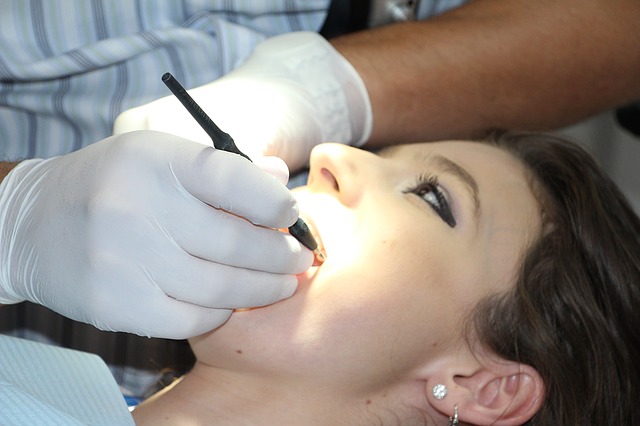
Conception and pregnancy can both be very harrowing, especially when it comes to the seemingly never-ending lists of things you should avoid. Many think the dentist is on this list of no-nos, and that’s no surprise to anyone who’s had more than a cleaning done. The X-Ray machines combined with all those whirring torturous devices are terrifying enough, and soon-to-be moms are likely to start wondering what kind of dangerous chemicals are in all of the toothpastes and mouthwashes they use every day.
It is a misconception that pregnant women, or those trying to conceive, should avoid the dentist. In fact, proper dental care is crucial to a healthy pregnancy for so many reasons. First off, approximately 18% of premature births are believed to be associated with periodontal disease. Second, the hormones your body manufactures during pregnancy cause gums to swell and bleed, which increases your risk of several types of periodontal issues. A thriving fetus also carries the potential to leach the mother’s body of important nutrients, including calcium, which means that you could potentially end up with teeth much weaker than those you started with.
The increased risk of dental issues, combined with their potential to negatively impact a pregnancy, means that you should definitely keep oral hygiene at the forefront of your mind during this time. And yes, you should visit the dentist at least once during your pregnancy.
A few important things to keep in mind when visiting the dentist while pregnant:
- If you need a filling, don’t opt for the metal version as they contain high amounts of mercury, which can be incredibly harmful to a growing baby.
- X-rays should be avoided during a pregnancy. In an emergency situation, a magnetic apron can be placed over the torso and pelvis to protect the baby, but if it can wait, it should.
- Always tell your dentist that you are pregnant. This information will not only affect your treatment options, but also the recommendations given when you leave. It’s best to keep all healthcare providers in the loop about a pregnancy, even if you think the procedures are unrelated or won’t affect you or the baby.
Apart from visiting the dentist at least once during your pregnancy, you should also make at-home oral care a top priority. Flossing daily is always recommended, but it is even more imperative at this time as your gums are at an increased risk of swelling. Try to floss and brush a minimum of twice a day. If you can work it in after each meal, even better.
You definitely want to use fluoride toothpaste. Your teeth have a higher chance of losing enamel during pregnancy, and the fluoride can also help the baby’s developing teeth even before birth. If your gums become swollen or irritated, or if they are bleeding in excess, you may be developing a periodontal disease like gingivitis, and you should make an appointment to have it checked out.
Proper oral care is an important aspect of having a healthy pregnancy and a healthy baby, but it should begin long before the actual conception. Dental hygiene should be taken into account as soon as you start trying to conceive. If you suspect you already have a periodontal issue, it could affect your chances of getting pregnant, so a visit to the dentist beforehand could never hurt.
Dental care while trying to conceive is a little different than dental care while pregnant, as some common ingredients can cause conception issues. Not surprisingly, these harmful chemicals affect the father’s fertility just as much as the mother’s. Fluoride can decrease fertility in both men and women, so it’s recommended that you both use a non-fluoridated toothpaste while trying to conceive, unlike during the actual pregnancy. Triclosan is another common ingredient in oral care products that can make it difficult for both males and females to conceive, so make sure to avoid that as well.
High levels of mercury can be just as detrimental to fertility as they are to a growing fetus, so nix the metal fillings, and also avoid x-rays just in case your efforts have been successful. As with a pregnancy, you always want to inform your healthcare providers that you are trying to conceive. The more information they have about you and your situation, the better they are able to help you.
Daily oral hygiene, including flossing, should be just as much of a priority while you’re attempting to get pregnant as it is when you actually do. I can’t stress enough just how important dental care is to the health of you and your developing baby, and the American Dental Association agrees. I hope this information helps you along the way to a safe, happy pregnancy and a cheerful, healthy baby.



























